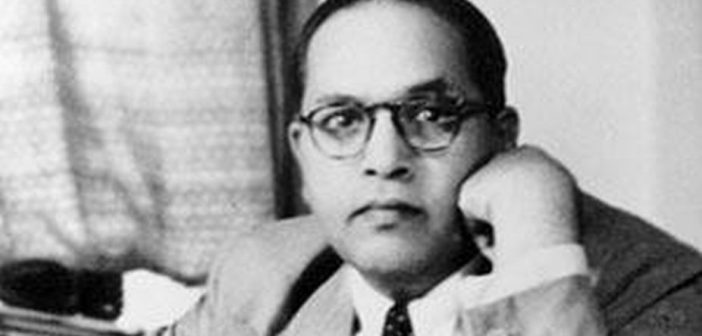As India commemorates the birth anniversary of Dr. Bhimrao Ramji Ambedkar on April 14, citizens across the nation reflect on the profound impact of this towering figure. Known fondly as Babasaheb, Ambedkar’s legacy continues to resonate, shaping the socio-political fabric of modern India and inspiring movements for justice and equality around the world.
Born in 1891 in a small village of Mhow, Madhya Pradesh, to a Dalit family, Ambedkar overcame insurmountable barriers of caste discrimination to emerge as one of the most influential leaders of his time. His life story is a testament to the triumph of intellect, perseverance, and an unyielding commitment to human dignity. From laying the foundation of India’s Constitution to championing the rights of the marginalized, Ambedkar’s contributions span the realms of politics, social reform, economics, education, and beyond.
The Framer of the Indian Constitution
One of Ambedkar’s most celebrated achievements is his role as the chief architect of the Indian Constitution. As the chairman of the drafting committee of the Constituent Assembly, he played a pivotal role in crafting the document that serves as the cornerstone of Indian democracy. Under his guidance, the Constitution enshrined principles of equality, liberty, justice, and fraternity, ensuring that the rights of all citizens, irrespective of caste, creed, or gender, were safeguarded.
Ambedkar’s visionary approach ensured the inclusion of provisions for affirmative action, such as reservations in education, employment, and legislatures for Scheduled Castes and Scheduled Tribes. He envisioned these measures as tools to level the playing field in a deeply hierarchical society. His articulation of “constitutional morality” emphasized the need for an unwavering commitment to the ideals of justice and fairness enshrined in the Constitution, which he described as a “fundamental creed of life.”
Crusader for Social Justice
Ambedkar’s lifelong mission was to eradicate the deeply entrenched caste system that he viewed as the root cause of India’s social and economic stagnation. Born into the Mahar caste, considered “untouchable,” he personally experienced the indignities and deprivations imposed by this discriminatory system. These experiences fueled his determination to dismantle caste hierarchies and uplift the oppressed.
His leadership of the Mahad Satyagraha in 1927 to assert the right of Dalits to access public water tanks symbolized his commitment to equality. Similarly, his burning of the Manusmriti—a text he viewed as a symbol of caste-based oppression—underscored his defiance of orthodox traditions that perpetuated social injustice.
Ambedkar’s clarion call for Dalit empowerment culminated in his historic decision to embrace Buddhism in 1956, along with hundreds of thousands of followers. This conversion was not merely a rejection of Hindu orthodoxy but a profound affirmation of a faith that he believed upheld the values of equality, compassion, and rationality. The Dalit Buddhist movement he spearheaded remains a powerful force for social transformation.
Advocate for Women’s Rights
Ambedkar was a staunch advocate for gender equality and recognized the pivotal role of women in nation-building. His draft of the Hindu Code Bill, though met with resistance, sought to secure equal property rights, divorce rights, and inheritance rights for women—a progressive stance that was ahead of its time. While the bill faced setbacks, his efforts laid the groundwork for subsequent reforms in family laws and women’s rights in India.
Ambedkar’s speeches and writings often emphasized the interconnectedness of caste and gender oppression. He believed that true social progress could only be achieved when women, along with Dalits, were freed from the shackles of discrimination and subjugation.
Economist with a Vision
While Ambedkar is primarily celebrated as a social reformer and legal luminary, his contributions to economics are equally noteworthy. He was one of the earliest advocates for industrialization as a means to modernize the Indian economy and alleviate poverty. His doctoral thesis, “The Problem of the Rupee,” remains a seminal work on monetary economics, influencing the establishment of the Reserve Bank of India.
Ambedkar’s economic vision extended to rural development and labor rights. He championed fair wages, social security, and decent working conditions for industrial and agricultural workers. His emphasis on land reforms and state-led development highlighted his commitment to equitable economic growth.
A Legacy of Resilience and Reform
Ambedkar’s influence extended beyond the borders of India. His efforts to highlight caste discrimination on international platforms, such as the Round Table Conferences in London, brought global attention to the plight of Dalits. He argued that social justice was not merely a domestic issue but a universal human rights concern.
Despite facing relentless opposition and personal vilification, Ambedkar’s resilience remained unwavering. He once remarked, “Life should be great rather than long,” encapsulating his philosophy of living with purpose and making a meaningful impact.
Relevance in Contemporary India
Decades after his passing in 1956, Ambedkar’s teachings and ideals continue to be a guiding light for movements advocating social justice, secularism, and democracy. His image is a symbol of hope and resistance for marginalized communities. Statues of Ambedkar dot villages and cities across India, and his writings remain a source of inspiration for scholars, activists, and policymakers.
Celebrating the Visionary
April 14 is not merely a date to commemorate Ambedkar’s birth but an occasion to reflect on the values he championed and the India he envisioned—a nation where every individual could live with dignity and equality. Events held across the country, from educational seminars to cultural programs, aim to deepen public understanding of his contributions and inspire new generations to carry forward his legacy.
As India stands at the crossroads of rapid development and deep-rooted social divides, Dr. B.R. Ambedkar’s life and work serve as a reminder of the principles that must underpin progress. His unwavering commitment to justice, equality, and human rights continues to illuminate the path toward a more inclusive and equitable society.





